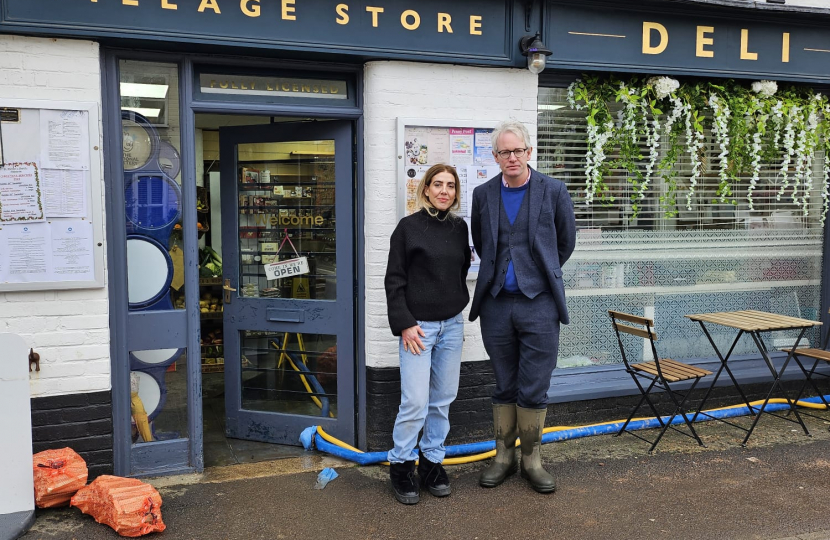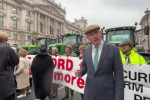
The floodwaters are down around Marlborough. On Friday I popped in on Val Compton (mentioned last week) in her house on the river. She has the carpet out and between the floorboards you can see the mud 6 inches below, whence rose the groundwater on 5 January. In the bookshop at the Katherine House Gallery the dehumidifiers are working night and day, but the floor will be damp for weeks. Any businesses needing help to recover from the flooding can see here for government help.
At their office in Marlborough overlooking the Kennet the team from Action on the River Kennet (ARK) explained: we have had the wettest winter on record and consequently the groundwater is the highest it has ever been. Round here the land is chalk, whose holes make the earth like a giant sponge: when it fills, as it did this month, it is very full indeed. Then streams we didn’t know we had - ‘streams that have been dry since periglacial times’, said Charlotte Hitchmough from ARK - suddenly appear across fields and roads. And usually dormant bournes become torrents. Charlotte gave me a piece of local wisdom, rarely wrong: ‘when the Hungerbourne flows, it spells doom’. This month it did, and it did.
No river defences can cope with flows of these volumes, nor does dredging the streams do much except make the water run faster until it hits a bridge or a town. We need more wetlands upstream of the towns; more water meadows to take the overflow; and more hedges and trees to break the run of surface water. Charlotte welcomed the new ‘Make Space for Water’ grants available to farmers.
After that I headed to Aldbourne where the waters are still high. Emma Chittenden can’t get her car out of her drive because a hole a metre deep has opened up by the roadway, where an underground pipe has burst; the lane is a river: the Aldbourne itself, which has risen higher than its usual spring, now rushes down Lottage Road. I have written to Thames Water about the pipe.

In their flat above the Aldbourne Post Office on 5 January Tessa and Eddie Berisha were watching the Mr Bates documentary (an appalling saga - see my comments here) when they realised the water was getting in downstairs. Beneath the floor in their back office was a well - news to them - which was now gushing up. I’m glad to see the place (which has a wonderful cafe and shop, selling homemade lunch - great sausage rolls - do visit) running smoothly again except for the pipe pumping water through a hole in the front door.

This Friday Michelle Donelan, the neighbouring MP, and I host a careers fair at Melksham, with employers offering opportunities of all kinds - please pass the word (details here).
This coming week in Parliament will be dominated by the situation in the Red Sea, and with the return of the Safety of Rwanda Bill. I recognise the imperative of protecting maritime trade and I support military action to stop the Houthi attacks on shipping. I remain, however, concerned that we don’t find ourselves pounding deserted missile sites, at great expense to ourselves and great propaganda benefit to the enemy; and at the risk of further entanglement in a regional conflict that could become a regional war.
On Rwanda, I have written about my views on the new Bill here. I am sorry that, so far, the Government has not found itself able to improve the Bill which will, in my view and that of others, including the former immigration minister Robert Jenrick, not succeed in its current form. I have signed amendments which will be debated this week.
John Chandler, the local historian whom I often draw on in these newsletters, really goes to town on Aldbourne. Here were England’s leading bell foundries: you can tell an Aldbourne church bell because the legend is cast on the rim not the shoulder. Roundabout the industry of warrening flourished, and you can still see ‘pillow mounds’, manmade humps for burrowing rabbits. The village of Snap, in the parish, was abandoned as recently as 1914. As in the Post Office this month, old wells appear, like the one near North Field Barn, 'discovered by the investigator disappearing into it’ in 1912. And William Cobbett wrote of the downs round Aldbourne, ‘If I had to choose, I would live ever here.’





